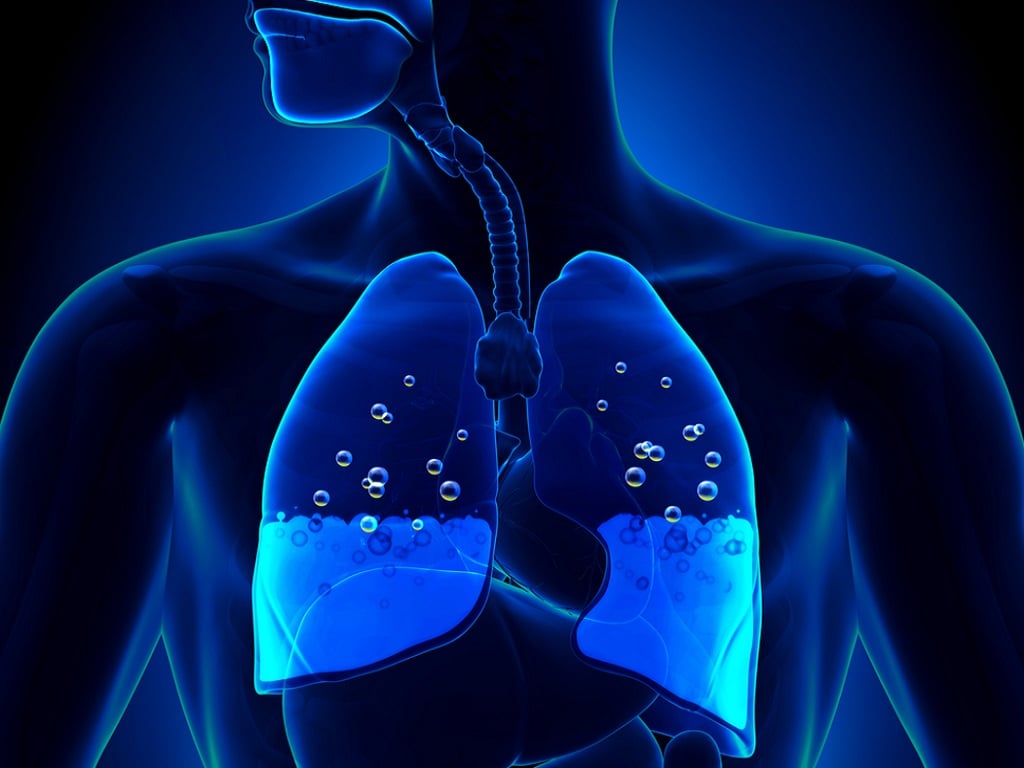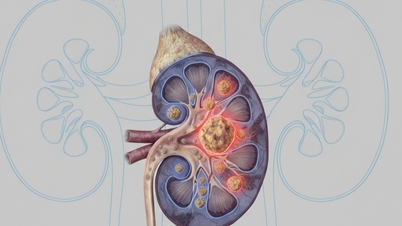The non -profit Mayo Clinic (USA) recommends that adults drink about 2.7 to 3.7 liters of water per day. Drinking plenty of water offers numerous health benefits, from speeding up digestion and regulating body temperature to preventing kidney stones and improving respiratory health, according to the health website Healthline (USA).

Not drinking enough water can irritate the respiratory tract, leading to coughing and infections.
For the lungs to function properly, it's crucial to drink enough water. Adequate hydration allows the lungs to perform complex tasks such as respiration and the exchange of oxygen with carbon dioxide.
However, drinking too little water can lead to dehydration and directly affect respiration. The first effect is a reduction in mucus production in the respiratory tract. Mucus is a crucial component in the mechanism for fighting off irritants, dust, and pathogens as air enters the lungs.
Dehydration forces the body to conserve available water, thereby reducing the amount of mucus in the respiratory tract. As a result, the respiratory tract becomes more irritated, leading to coughing and infections.
A study published in the journal Thorax showed that dehydration reduces the elasticity of lung tissue. This means the lungs' ability to expand and contract during breathing decreases, making them less flexible and more prone to lung problems.
Dehydration has a more pronounced impact on the lungs if you have a respiratory condition such as chronic obstructive pulmonary disease (COPD), bronchitis, or asthma. Specifically, dehydration exacerbates the symptoms of these conditions, such as shortness of breath, coughing, and other discomforts. For example, COPD already causes narrowing and inflammation of the airways. Dehydration further narrows the airways, making breathing even more difficult.
A study published in the Journal of Exercise Rehabilitation found that dehydration causes the mucus lining the trachea to thicken. This makes breathing difficult and worsens asthma and allergic reactions.
Even in healthy individuals, dehydration negatively impacts respiration, causing the trachea to produce less mucus and become more prone to inflammation. All of these conditions narrow the trachea and make breathing more difficult.
In addition, drinking enough water is also crucial for the function of transporting oxygen from the lungs to the rest of the body. Dehydration leads to a decrease in blood volume, making the blood thicker. This condition impairs the blood's ability to transport oxygen.
To avoid dehydration, which can negatively impact respiratory function, the best way is to drink enough water. In addition, people should regularly eat foods with high water content, especially fruits, according to Healthline .
Source link











































































































Comment (0)